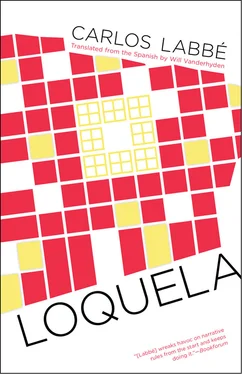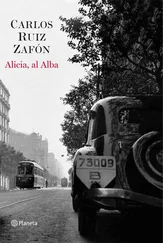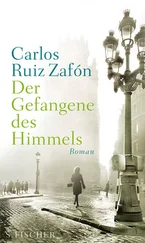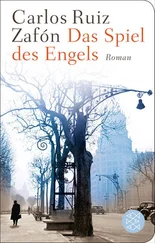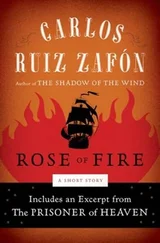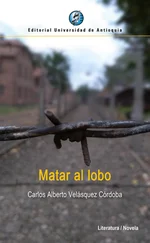
September 20 th
No one regrets nothing. The last memory I have of J (if that was the last time, because her writings are very oblique) is of her raising one hand in shy greeting, from a distance. I couldn’t imagine her, despite the determination of her words: shrunken but in no way fragile, her long fingers energetic in the air. The other seemed to be oscillating between his notebook, his book, his pillow, the TV, the telephone, the balcony, and all of a sudden The Little One was clawing his skin and he was unable to hide because he was naked in the middle of an unknown city, maybe a consequence of nothing more than the inexperience of our poor narrator. (I know that he’ll come and rewrite this, one, three times, but at least I’ll dedicate myself to writing about my own life.) Or maybe he’s lying there in bed, half asleep and trying to focus on a photocopied article of criticism on Onetti that he’s reading, thinking he’s abandoned the writing of his so-called personal diary; while reading about the notion of uprooting in A Brief Life , his desolate eyes fall on the drawer containing this notebook, wrapped in brown paper, and he thinks: another precious project that never materialized. The idea had been to defy Alicia, that a novel fabricated with the uncomfortable and carnal plot of the quotidian would be more excessive than all the scribblings of a little albino girl, who abuses her body to gain access to that imaginary childhood city; he couldn’t have known that the passing of the hours would turn against the writer, chaining him to everyday life. O, how I adore those types of figures: the one who writes in isolation triumphing over the one who lives constantly thinking about what is happening. Unfortunately I am subject. I live here, with someone who has fallen asleep, who is starting to dream about snow, about the idea of purity. The Little One enjoys this, looking up at me panting on top of her, saying: “Carlitos, you still believe in purity?” And I stroke her face with both hands, with the backs of my fingers. If I speak the learning will cease; I should moan, breathe, cough, clear my throat and spit on that little girl, whom I despise and adore simultaneously, stretched out naked across the wrinkled bedspread of the moth-eaten mattress where she lies waiting for me. She gives me a sign, putting a vertical finger over her lips and together we draw back, watching him; the expression his face is wearing now is very entertaining, leaning on the desk, ripping out a page from the notebook where he has written the following:

September 20 th
I spent the 18 that Alicia’s house; her parents weren’t there. She invited me to dinner with one of her cousins and his fiancée. The conversation was very interesting, she was gorgeous coming back from the kitchen with a tray full of sushi and everything arranged so she’d always be sitting in the empty seat next to me. She avoided looking me in the eyes, turning her back on me whenever she could. She had an artichoke leaf in her small teeth and she wanted to hold my hand, rocking one leg, the same combat boots as always, sometimes brushing against one of my shoes, the left, and announcing in a serious tone that this was a celebration, the reason didn’t matter, better that way, right? For a second, let’s pretend that we can be other people, that a space exists where we could be happy, the pain of the pen leaving its mark. Let’s leave behind for a second this thing about you and me, about literature and possibility. I was going to say that it’d be better for us to forget that she was Alicia and that I was me, sitting there with such affection, such longing, such love (that word), that we lost the names, that I am a false resident of Santiago, that she travels every month and every week, but where is she going? That when I attempted to write an authentic page, her albino friend got raped in the paradisiacal port of Neutria by a group of beggars who found her under a bridge without any clothes, all because of her longing for transcendence, a twisted need to escape the skin. Alicia was widening her eyes, listening to me, then she interrupted, exclaiming that she was nervous because her brother had taken her parents’ car out right in the middle of the September 18 thfestivities, and some drunk might’ve run into him. I went home, I was that drunk, and I brought her smell with me, asking myself how I could possibly keep from getting obsessed with a woman like her, thinking about her black dress, about good and evil, about the body and the soul (the blathering of drunks). How not to want her, how to understand why she evaded my touch, I don’t know, for the same reason that J asked that we just be friends, because the flesh ruins itself, the touch becomes abrasive, the orgasm ends, not so a conversation between a man and a woman who guess each other’s words, complete each other’s sentences, invent expressions, laugh at their own verbal ridiculousness. Thinking this, I got in bed, tried to masturbate, but felt like a child, went over to my desk chair wanting to touch something in this apartment that wasn’t mine, I opened my eyes knowing what Carlos would be doing now: sleeping with The Little One, or, at least, dreaming my wet dream about her.
The Little One listened with a silent, little laugh to the way I imitated that guy’s monologue. Then she unclasped her legs, which were wrapped around me, got dressed and said: come on, Carlitos, it’s Fiestas Patrias. We’re going to find the others, we’re going back to Neutria, without Violeta, who cares about her. Let that other guy sit around and worry about the dead albino girl, not understanding that she was trying to leave but was just afraid to do it on her own, and that no one knows how to interpret those pages she wrote about the Corporalists. Don’t look at me like that, you don’t understand anything either, who’s going to shoot her if she’s already dead, stupid. She was so beautiful.
Then it was dark. It was a cold night, we were walking toward Cerro San Cristóbal, and into my mind came his rueful face looking at his notebook, uselessly recovering the thread of his diary. A static image like the last one I have of J, and so it’s not a surprise that he stays like that, like in one of Alicia’s drawings where, sitting in the quad at the university, she and he observe J approaching in the distance, and in turn J is watching them: all three with their hands in the air, waving. The characters understand that they’ll never touch again, that they’ll only be able to wave to each other from far away, and The Little One and I pass through a gate that opens onto the part of Cerro San Cristóbal covered with bushes, at last we make out a naked hand holding a cigarette that rises to guide us.
Carlos remembered a summer when he was about fourteen, a girl in Rapel. He would dive into the lake and then run back to his towel. The girl, he didn’t remember her name, spent entire days lying there, wearing ridiculous dark toy sunglasses, reading a book; there were times when she didn’t appear for days and other times she’d spend a whole week just a few feet away. When he came back from swimming, numb, he felt like he was being watched. Once, Carlos asked her what she was looking at, the girl said nothing. The next day he tried a different tack: why was she looking at him. She responded that it was because she desired to look at him. Just like that, over and over, without variations in the dialogue until, at the end of the summer, Carlos had approached the girl to invite her to go waterskiing at the reservoir on his friend’s boat. She thanked him, but said she had no desire to go. Desire! Carlos exclaimed mockingly, and went running toward the pier.
Читать дальше
